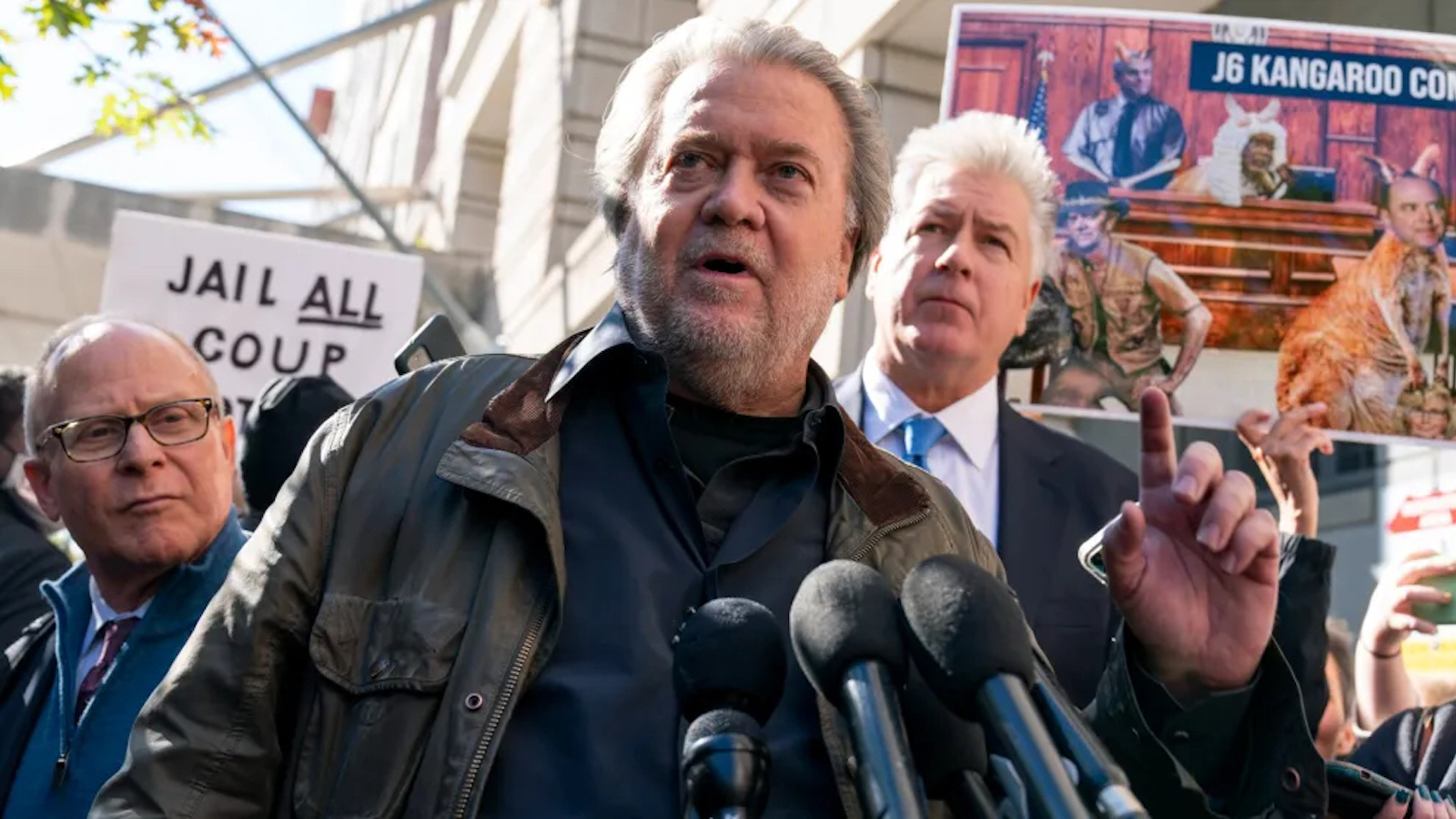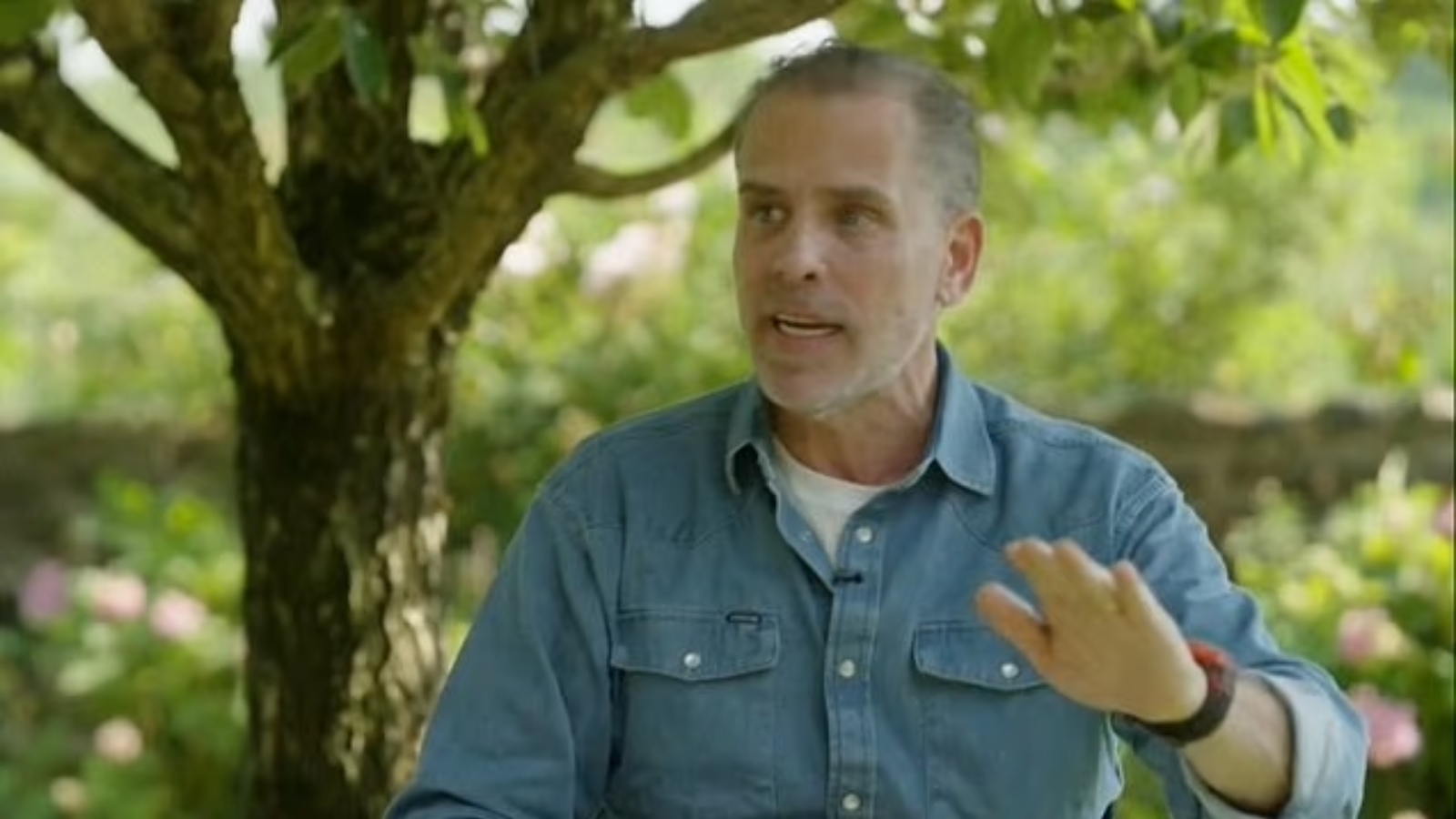
Forever Word War
Something tells me Steve Bannon isn’t about to be the next Andy Dufresne, stocking the FCI, Danbury library with Julius Evola and Christopher Lasch tracts.
The one-time MAGA Svengali and now… *checks Google bio* podcast host… is taking a four-month forced vacay from his war on Washington to serve a sentence in minimum security fed-pen. His crime? Defying a congressional subpoena, which is surprising, given that Bannon is normally a blabbering attention-whore who gasses in front of an internet screen for hours upon hours every day. Mouthing off to Congress about the gathering rage in l’Amérique profonde sounds right up his alley.
Instead, Bannon is being jugged for his self-mutism, but not before sounding off at his dialectical antithesis: New York Times columnist David Brooks.
Brooks, as the Times resident right-splainer, showcases Bannon’s careening cosmovision, which is, to use a technical term not hyperbolically but with careful precision, revolutionary. Brooks compares his tête-à-tête with Bannon to conferring with “Leon Trotsky in the years before the Russian Revolution.” Not an entirely inapt comparison—Steve and Leo are political martyrs. Trotsky, of course, got an ice pick to the noggin; Bannon is only going on ice for a season in a white-collar clink.
Normally, I don’t care a hang about the popu-lust schemes Bannon hatches from behind his RØDE PodMic. I’d rather endure hours of Slovakian soap opera without subtitles than watch his flapping neck folds liken Marjorie Taylor Greene to Cleopatra, while hawking pillows or coffee or gold or whatever conservative commodity du jour. But between all his bluster about his martialing an army of angry moms and unshowered, disaffected shitposters, Bannon hits on something so diabolical, so deceitful, and so disembodying that it makes him come off as the echt Washington operator.
Referencing Marshall McLuhan’s dictum “the medium is the message,” Bannon goes all in on the efficacy of propaganda, citing his former boss and favored presidential candidate. “[Trump] understands that to get anything done, you have to make the people understand. And so therefore, constantly, we’re in a battle of narrative.” Not one for half-rhetorical-measures, Bannon clears up ambiguity: “Unrestricted narrative warfare. Everything is narrative.”
The Nietzsche dictum that “whoever fights monsters should see to it that in the process he does not become a monster” pops to mind. Because Bannon, despite his damn-them-all thundering about DC duplicity, has become that which he professes to hate: a conceited confidence man.
Narrative-crafting is the most booming business in Washington, with the honored exception of arms buckraking. Countless boutique PR firms take up a stool or two in co-work spaces that dot K Street, offering everything from message massaging to bureaucratese translation to subterranean smear campaigns to op-ed construction (writing is too generous a verb, as mass-produced editorials more often read like a child assembling a Kinex model, or as Orwell put it, an assemblage of “prefabricated phrases”). Heaven forbid ChatGPT somehow replaces public relations—the skyscrapered Potomac hamlet of Rosslyn would transmogrify into a ghost town overnight.
Bannon believes he can hijack the narrative ecosphere to push his populist agenda, as if innumerable magazine editors haven’t already tried and failed, or grayed into irrelevancy like National Review. Best of luck with that. Bannon is wading into a thin but wide pool of word arrangers who think themselves the new Hemingway but with the cunning of Machiavelli, the wit of Lord Byron, and the civic sense of Walter Lippmann, all of whom they’ve never read. Washington is a southern town where it snows white every day and night—the capital city is blanketed with reams of press releases that fall from the sky nonstop.
What all these discourse fusillades accomplish is unclear, other than lining the pockets of laptop carriers who unironically pair pocket squares with jeans. Opinions don’t change; only the frequency shifts of which issues become Twitter fodder. NB: Donald Trump’s hostile takeover of the GOP made immigration a panel topic on CNN; Joe Biden’s unavoidable senescence during the recent presidential debate provided the media permission structure to discuss it.
Those examples, pertinent as they are, just apply to the “takes” game that is our mediascape. Americans outside the Beltway long expressed concern about illegal migration and Biden’s mental fitness—pundits simply obscured their worries with high-dudgeon declarations of code blue for democracy.
What Bannon really wants to be is what everyone in Washington secretly longs for: narrowly, to be a headline influencer, and more broadly, to confuse, disorient, and summon rage against his ideological opponents. Karl Rove apocryphally denigrated the “reality-based community,” which I take to mean people with normal functioning eyes and ears, as thick to how political power works. “That’s not the way the world really works anymore,” he told journalist Ron Suskind. “We’re an empire now, and when we act, we create our own reality.”
Rove is Bannon’s bête noire, and the two have been trading barbs for years. The irony is that both wish to harness the reach of mass communication to bend the government to their command. Karl Rove does so from his cushioned perch at Fox News. Bannon will be soon back behind his mic after his carceral sabbatical.
Peter Hitchens was too gentle when he dubbed public relations “organized lying.” The first presidential candidate who repurposes Trump’s famous tagline to “make ‘narrative’ just a literature reference again” will win Portland, Oregon, in a landslide.
Free the People publishes opinion-based articles from contributing writers. The opinions and ideas expressed do not always reflect the opinions and ideas that Free the People endorses. We believe in free speech, and in providing a platform for open dialogue. Feel free to leave a comment.



